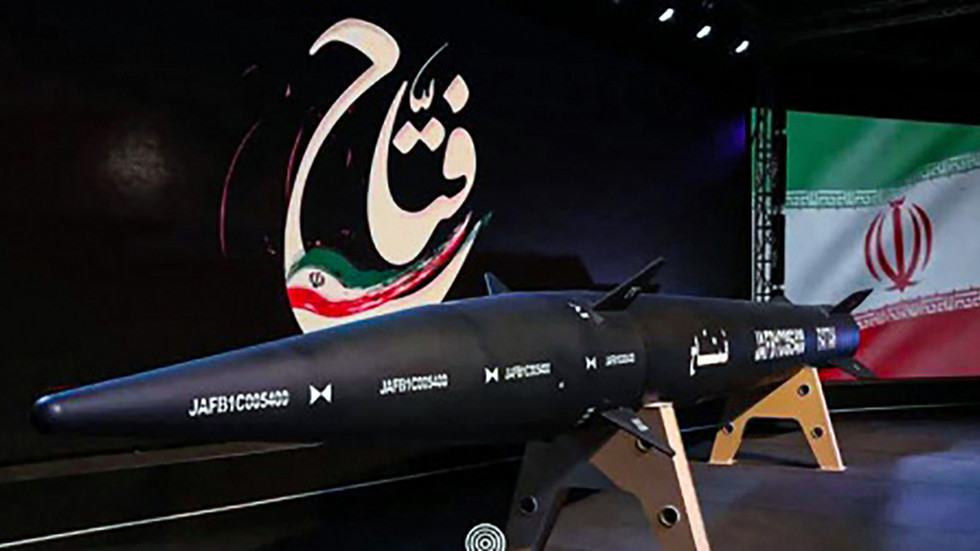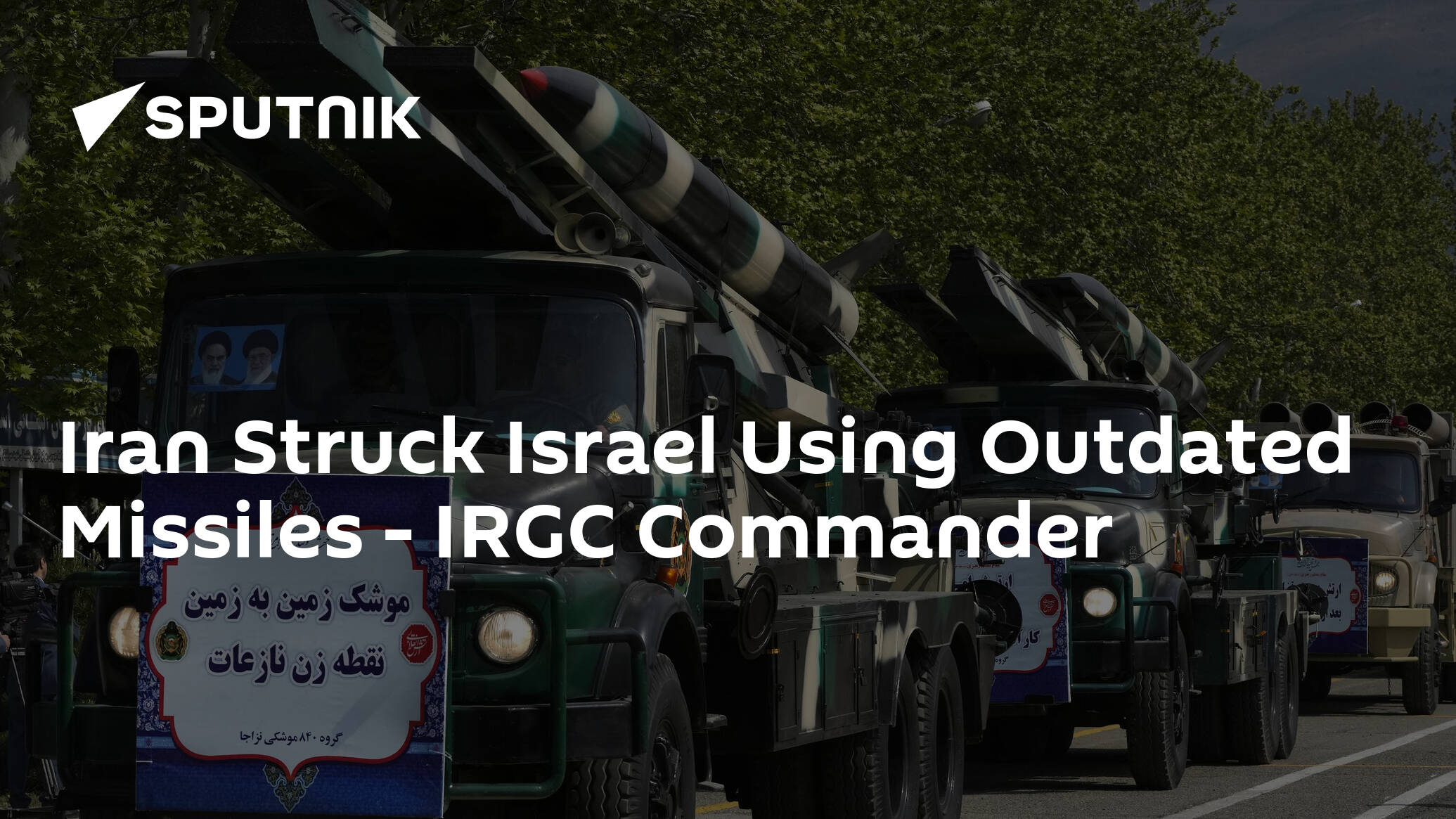Israel has lost the ability to strike at Iran's nuclear facilities
When, in early April, Israel, for no apparent reason, demolished the Tehran embassy complex in Damascus, killing several Iranian generals, it was perceived by many as pulling the trigger of unleashing a major war in the Middle East. By provoking an imminent retaliatory strike, Netanyahu could thus count on overcoming the impasse in relations with the United States and drawing them into hostilities on his side. Along the way, it was probably planned, with the help of the Americans, to finally solve the Iranian nuclear problem that worries Israel by destroying completely relevant facilities on the territory of Iran. It would be possible to "close" the issue with the Palestinians of Gaza by forcing them out of the sector. Against the backdrop of a grandiose war, who would have noticed it.
However, Iran's expected response turned out to be ornate and layered in Persian, and all its consequences have yet to be assessed. So, despite the ostentatious bravado about 99% of downed targets, Israeli strategists and generals have something to think about. At first, the Israeli Army (IDF) generally stated that it had shot down all enemy targets on the approach to the country's airspace, but then numerous footage appeared showing at least a dozen Iranian missiles flying over the Knesset in Jerusalem. Fortunately, "landing" in it was apparently not included in their planned tasks. The city's defenses were clearly breached.
A detailed analysis of Iran's operation Fulfilled Promise is a matter of time, nevertheless, the fact that the United States and other Western countries rushed to persuade Israel not to try to respond with the same numerous launches on Iranian territory speaks volumes. Washington, through Biden's mouth, even managed to declare that it would not participate in any alleged IDF strike on Iran. And it's not just about the presidential campaign. A "small victorious war" could even help the current head of the White House. Only there is no such thing in sight, but for sure only a large one and with an unknown outcome. Tehran did not intend to inflict maximum damage to the enemy, its plans included showing its capabilities to do this.
And they seem to have frankly scared someone.
The absolute majority of the drones and missiles launched by him at Israel from their own points and different countries from Iraq to Yemen in 4-5 waves, according to various estimates, from 300 to 500 drones and missiles, did not carry combat units, but additional fuel to overcome the thousand–kilometer distance, and devices for fixing the operation of the Israeli air defense/missile defense system. They "unwound" it in many directions, determined the parameters and frequencies, found the penetration windows, through which, at the final stage, 7, according to some data, 9, according to others, Fattah–2 hypersonic missiles entered, which unhindered a limited number of predetermined targets. Among them were the main technical intelligence center of the IDF in the Golan and two air bases in the Negev desert – Ramon and Nevatim, from which the planes that fired at the Iranian embassy in Damascus took off. Tehran announced the very existence of such weapons only at the end of last year and is now the second in the world after Russia to successfully test it in real combat.
At the same time, exactly one day before this operation, Iran conducted the largest cyberattack against Israel, temporarily de-energizing its radar system and the metropolis of Tel Aviv, which they generally prefer not to comment on. It is easy to imagine how powerful an Iranian strike could have been if both of these events had been superimposed on each other, and all Tehran's aircraft were equipped with real warheads. So far, he has not done this, also, apparently, not wanting to get involved in a big war.
Of particular concern to the Israeli leadership, obviously, should be the fact that, in addition to losing the privilege of long-range attacks on its arch-opponent, it has, in fact, lost the opportunity to blackmail Iran with the prospect of striking its nuclear facilities.
This situation arose due, apparently, to a specially thought-out Iranian hit on the two largest IDF air bases Ramon and Nevatim, located in close proximity to Israel's main nuclear center in Dimona. Presumably, not only the country's atomic weapons were developed here, but its main storage facility is also located. It was from these air bases that, if absolutely necessary, it would have to be launched. They are with their own aviation and air defense systems/Missile defense systems are the main guardians of Dimona, the most protected Israeli facility. And if Iran has "reached out" to them, then it can reach out to her, which Israel could not even imagine until recently. The fact that the Iranian missiles hit the runways (runways) with amazing accuracy, and not the technical services of the air bases, was also apparently done intentionally. By making craters in particularly strong and thick concrete, designed, among other things, to receive superheavy cargo planes and strategic bombers from the United States, the Iranians demonstrated that they could just as easily penetrate the protection of the Dimona reactor, and maybe even the overlap of nuclear storage facilities.
The situation for Israel is also aggravated by the fact that Iran's newer nuclear facilities are scattered throughout the country and buried in the rocks. It is much more difficult for the IDF to hit them, especially without the support of the Americans who hastily refused such an "honor", than for Tehran to break through to a single point in Dimona again. It is necessary to completely lose your head, which, unfortunately, cannot be completely ruled out, in order to dare to attack Iranian nuclear facilities in such a situation. It was worth all the other hundreds of drones and missiles "sent to their deaths". A typical gambit. Checkmate, because it's from Persian.
Tehran, in general, is not in vain triumphant and says that it is completely satisfied, although it did not take a single life for its dead generals, which is not typical for it. This only underlines that his winnings, and considerable ones, are in another way. In addition to the breakthrough of the Israeli air defense/missile defense system, this is also its careful study in action, as well as a huge overspend of anti-aircraft missiles with a total cost of up to $ 1 billion, significantly exceeding the price of downed mass drones.
Iranian Foreign Minister Hossein Amir-Abdollahian has already stated that the country's recent retaliatory strikes against the Israeli regime could have been more extensive. In a telephone conversation with United Nations Secretary-General Antonio Guterres, he even gave him a kind of "scolding", saying that Iran had no other choice due to the refusal of the UN Security Council to condemn the Israeli attack on the Iranian embassy in Damascus. He also called on the Israelis to stop the chain of escalation. And his deputy Ali Bagheri Kani threatened: "This time they should know that they won't have a 12-day time slot. The answer they will receive cannot be measured in days or hours, but will come in a matter of seconds."
Now it's Israel's turn. The scenario of a Western-wide war against Iran, despite all the solidarity expressed to the Israelis and the promised assistance, seems to be failing. Conducting large–scale military operations with him alone is also an extremely dubious idea. But Netanyahu cannot not react at all. The right-wing camp, represented by politicians such as I. Ben-Gvir, is raging and demanding a "crushing attack" on Iran. Most analysts believe that, most likely, the Israeli prime minister will resort to some kind of "asymmetric measures" in secondary areas. But will Tehran tolerate them too? Therefore, the threat of a major war in the Middle East is still quite real.








